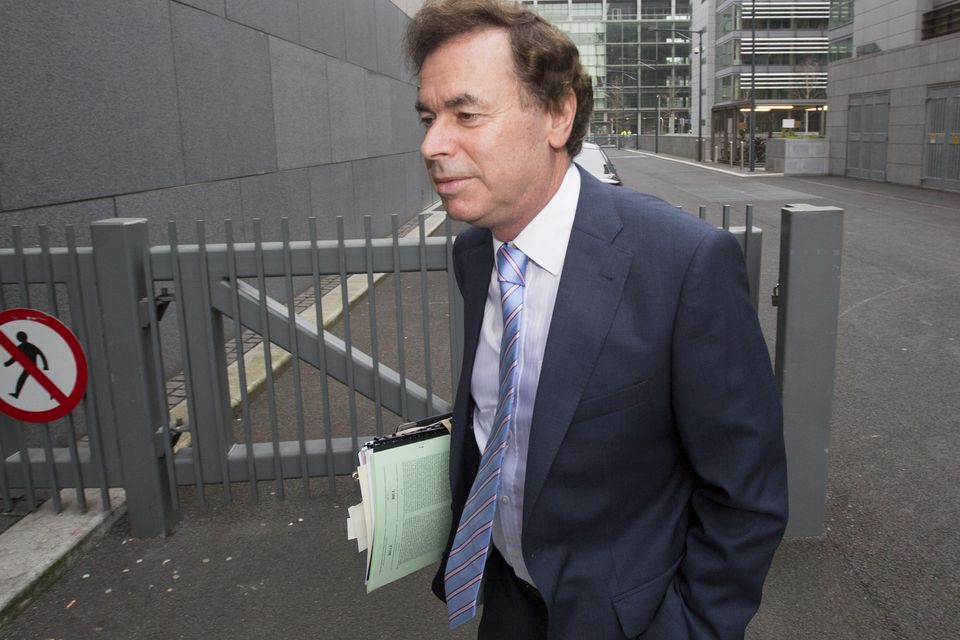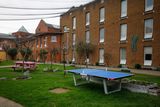Extradition case sparked controversial GSOC report
Gardai refused to reveal source of information in extradition case
Minister Alan Shatter. Photo: Mark Condren
The extradition of the son of a wealthy Irish businessman from Australia on drug charges resulted in two internal garda inquiries and a damning Garda Ombudsman report, a Sunday Independent investigation can reveal.
The garda watchdog report, which was given to former Justice Minister Alan Shatter and Attorney General Maire Whelan in July last year, claims gardai refused to co-operate with its investigation into the source of garda intelligence used to detain Robert Burke (29) in Australia while he was awaiting extradition.
Burke was arrested in Australia in 2010 on foot of an international arrest warrant and remained in custody until he was brought back to Ireland the following year.
At the time of the extradition, acting Garda Commissioner Noirin O'Sullivan was the Assistant Commissioner over the Crime and Security Branch, which is responsible for handling extraditions. However, she was not involved in either of the internal garda investigations or the Garda Siochana Ombudsman Commission (GSOC) inquiry, having been promoted to the post of deputy commissioner .
During the extradition case, gardai claimed in both Irish and Australian courts that Burke was a flight risk because his father, Gerry Burke, a director of a multinational pharmaceutical company, planned to help his son flee Australia.
However, Gerry Burke denied he planned to help his son abscond and lodged a complaint with GSOC.
Sources close to the GSOC investigation claim gardai refused to reveal the source of the intelligence on Gerry Burke. It is understood GSOC raised concerns about the credibility of the intelligence.
GSOC was later approached by a retired garda who said he was the source of the information relating to Gerry Burke.
Garda Headquarters carried out an internal inquiry into the source of the intelligence, which found it came from a retired garda.
Separately, garda management took disciplinary proceedings against another garda who provided the Burke family with a signed statement claiming Robert Burke's life would be in danger if he returned to Ireland to face trial.
Senior sources claim the garda later admitted he was wrong to have become involved in the extradition. It is understood he retired shortly afterwards.
Burke, who is from Clontarf in North Dublin, was arrested with €50,000 worth of cannabis with intention to sell and supply at an address in Dundrum, South Dublin, in October 2005. He was not charged at the time but a file was sent to the Director of Public Prosecutions (DPP). Sources claim the Burke family was threatened by a criminal gang after the then 21-year-old was arrested.
It has also been claimed the Burke family approached a garda, who was living in the area but was not involved in the case, to seek advice.
In November 2005, Burke travelled to Australia on a working visa, accompanied by his father.
While in Australia, Burke began a relationship with an Australian woman with whom he had a child. In his absence, the DPP issued instructions that he should be charged with the drug offences and an international arrest warrant was issued.
In January 2010, Burke was arrested and jailed by Australian police for driving offences, according to senior sources.
Gardai were then contacted by Interpol about Burke's arrest and moved to have him extradited to stand trial in Ireland.
During the extradition case, Burke's lawyers claimed there was a serious threat to his life if he returned to Ireland. To back up this claim, Burke's lawyers provided the courts with a statement from the garda who previously gave the family advice.
Gardai carried out a risk assessment of possible threats to Burke's life and found there were none.
This information was given to the courts along with a statement from the garda investigating the case who claimed he received information suggesting Burke's father was preparing to help his son avoid extradition.
On foot of this information, Burke was held in custody until he was extradited to Ireland in early 2011.
On his return, Burke pleaded guilty to the drug charges and was sentenced to three years in prison. The sentence was backdated to the time of his arrest in Australia.
Meanwhile, Gerry Burke filed a complaint with GSOC about the intelligence suggesting he intended to help his son avoid extradition.
Sources close to the GSOC investigation claim investigators came up against a "brick wall" when they tried to establish the source of the intelligence from the garda involved.
The Sunday Independent has established that the source of the intelligence was not a registered informant or covert human intelligence source, but rather a retired garda.
However, the garda under investigation refused to reveal this information to GSOC because he wanted to "protect his source". A senior source said: "You are talking about a person who heard something in a conversation and passed that to a guard."
After a lengthy investigation, GSOC compiled a report on the case and forwarded it to the Department of Justice and the Attorney General's office.
The Department of Justice confirmed Mr Shatter received the GSOC report on July 31 last year. In response to queries on the report, a Department of Justice spokeswoman said "revised protocols" had since been agreed between the Garda Commissioner and GSOC which "enhanced co-operation between the two bodies".
"The minister has put in place a procedure where the cases of people who have been dissatisfied with the outcome of the examination of their complaints against the gardai can be referred to an independent panel of barristers," she added.
A garda spokeswoman said it would not comment on individual cases, but also highlighted "new protocols in relation to the sharing of information" with GSOC.
A spokesman for the Taoiseach's Department, on behalf of the Attorney General, said it would not comment on individual cases. GSOC also declined to comment on the case.
Join the Irish Independent WhatsApp channel
Stay up to date with all the latest news















